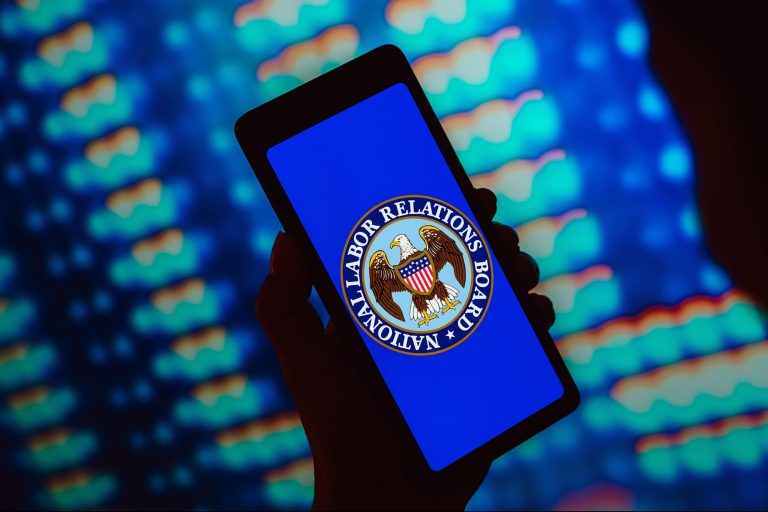
Last month, the U.S. Senate approved Congressional Review Act Resolution S.J. Res. 49, overturning the National Labor Relations Board’s (NLRB) expansion of the Joint Employer Rule, which the International Franchise Association (IFA) had steadfastly opposed since its introduction last year. The Senate’s action follows the House, which passed the legislation in January. It’s now awaiting President Biden’s signature.
Senate approval marked a major victory for the franchising industry. However, legal action remains pending, and questions remain about what these changes mean for individual franchise businesses. Most importantly, how can franchisors best protect their businesses from government action like this moving forward?
“The one thing that I can safely say is what we have now is not the last word on the subject,” said Jim Paretti, an attorney for employment and labor relations law firm Littler Mendelson, during the IFA’s April 23 webinar, “Joint Employer: Are Franchise Companies In the Clear?” The webinar also featured Michael Layman, IFA’s senior VP of government affairs and attorney Alex MacDonald, also of Littler Mendelson.
The expanded rule
The expanded Joint Employer Rule would have broadened the definition of joint employment, potentially making franchisors liable for employees they don’t directly employ or manage. It would have hurt both franchisees and franchisors. Franchisors would “be in a position that they can’t be liable for what somebody else is doing,” Paretti said, “so maybe they’re not going to franchise anymore. The franchise model just goes away, and franchisees are left holding the bag.”
Paretti also explained that if the courts resurrected the rule, he’d expect franchisors to begin exerting unprecedented control so that franchisees “start to look less like independent business people and more like middle managers who are not in business for themselves [or] making the decisions on a day-to-day basis. It’s all coming down from the top.”
Biden veto?
After the Senate and House passed Congressional Review Act Resolution S.J. Res. 49, the only remaining question is if President Biden will sign the legislation. The IFA said signing “would tie the hands of future NLRBs from instituting expansive joint employer standards and provide long-term certainty to franchising.”
Unfortunately, the attorneys do not expect the president to sign.
“The White House has made clear they’re planning to veto this resolution,” Paretti said. “I suspect there’s not sufficient support, given how it passed — even on a bipartisan basis. I don’t think you have that two-thirds support necessary to override it.”
Lawsuits
The IFA led a coalition that included the U.S. Chamber of Commerce, the American Hotel and Lodging Association and the National Retail Federation, which won a lawsuit challenging the expanded rule in Texas in March.
“We did get a good win down in Texas,” MacDonald said. “A lot of people are breathing a sigh of relief, but we can’t completely have a sigh of relief because there’s ongoing litigation and, frankly, these rules could come back.”
The NLRB has until later this month to appeal the Texas ruling, which Paretti thinks is likely.
Meanwhile, in Washington, D.C., the Service Employees International Union (SEIU) is also challenging the rule in court, arguing that it is too narrow. The same coalition from the Texas case, led by the IFA, intervened in the D.C. lawsuit, and the court is considering a motion to dismiss. However, Paretti sees a longer path for that suit.
“I suspect as long as this percolates through the court system, this is going to end up at the Supreme Court in some form or fashion,” Paretti said. “I just don’t see a way that it doesn’t.”
What should franchisors do?
There are some simple and direct things franchisors can do today to start protecting and preparing their business for a revived expanded Joint Employer Rule.
First, MacDonald recommended thoroughly reviewing all contracts (with vendors, franchisees, etc.) for indirect or reserved control specifications, such as direct training requirements, right to exclude workers, background check requirements, minimum qualifications and specific staffing and coverage level requirements. Counter these risks by clearly assigning responsibility for as many essential terms and conditions as possible to the employer.
Next, scrutinize your business arrangements: Emphasize brand standards over individual worker standards when you do need service requirements in contracts or in-house reporting and inspections. Minimize your involvement in recruiting, timekeeping, record keeping, pay policies and other operations.
If a franchisor must inspect a site, MacDonald again recommended focusing on brand standards, not individual worker standards. “You want to be watching for things like cleanliness,” he said. “Is the brand label displayed in the right place? Are they clearly communicating that they are a franchisee? Are the products stocked? Rather than on how many employees are working at the desk and how those employees are acting. Those kinds of things can start to look like supervision as opposed to protecting your brand standards.”
Additionally, reduce your reliance on nonessential vendors — especially if they need to be on-site — and train your supervisors on how to interact with vendors. But most of all, MacDonald said, “Pick reliable partners. If you end up contracting with a vendor who is operating on the borderline, then these rules make it more likely that you could be responsible for that vendor’s misconduct or mistakes.”